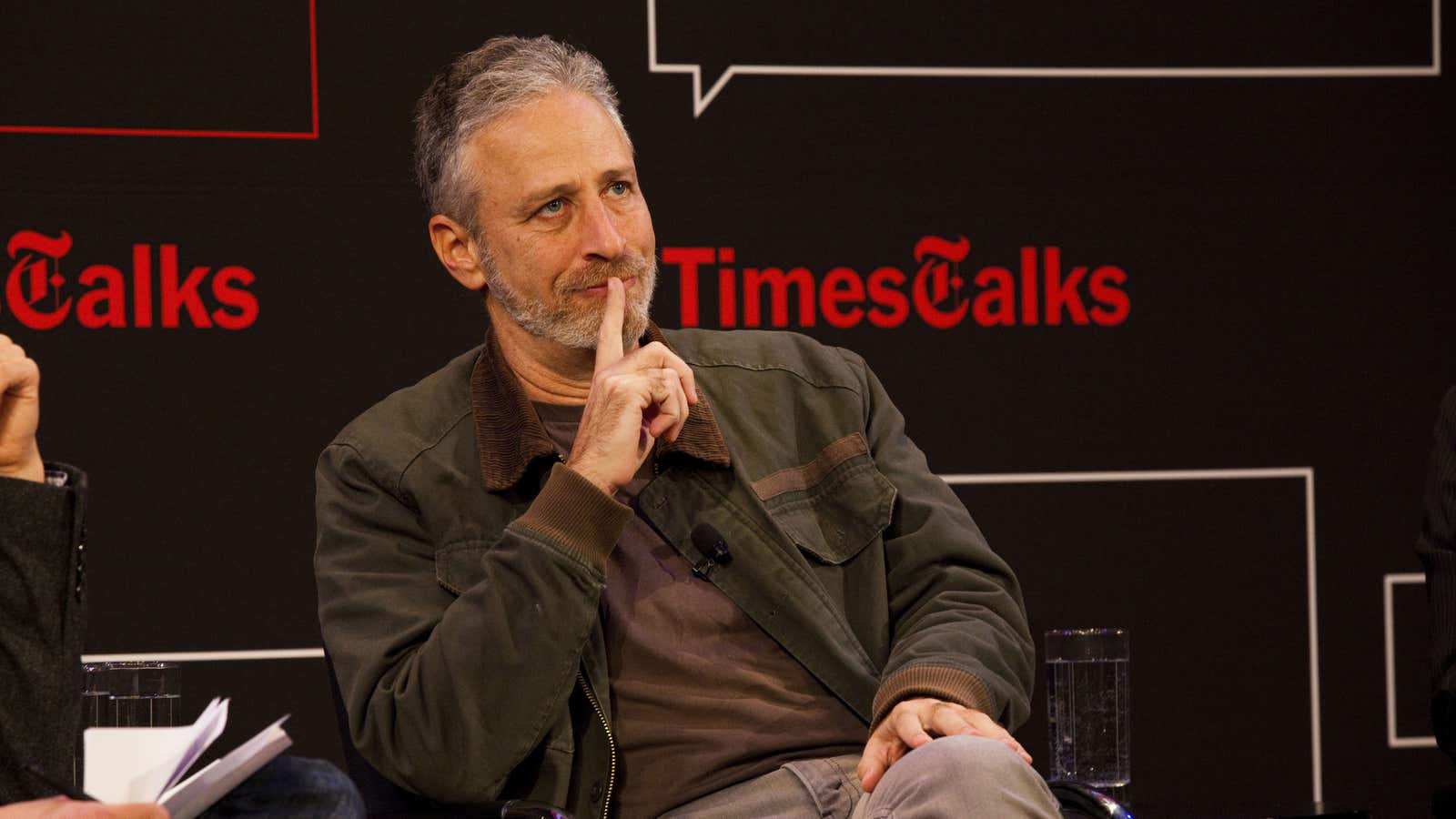Jon Stewart is a seasoned satirical news expert. Last night (Nov. 30) in New York City, the former Daily Show host took aim at the real media, commenting on its failures in the latest election cycle and its loss of trust among Americans. “What the media has become is an information-laundering system,” Stewart said, citing the thin, porous line between news published by mainstream media and fake news.
Stewart was speaking at a “Times Talk,” organized by The New York Times, for Chris Smith’s book, The Daily Show (The Book): An Oral History as Told by Jon Stewart. It’s been 16 months since he left the popular late night comedy show, after 16 years as host.
Stewart described the “information laundering” as the progressive surfacing of news—fake, or otherwise—from unverified sources into the mainstream. Because second-hand reporting is so common, he said, and is often done without serious vetting of sources, even relatively reputable news organizations will report on something that a blog or platform of unknown credibility has written. While these sites may provide attribution originally, another publication may omit the original source of the news in their reporting of the report. “That piece of information [on where the news came from] has now been laundered,” Stewart explained—and the original news, whether or not its source was credible, has now gained more credibility, especially if it was picked up by outlets known for their high standards. This process was recently highlighted and dissected by The New York Times in a case study of how a falsity in a single tweet became viral news in a day.
“Much of the media is fake,” Stewart said, referring not only to purposefully fabricated fake news, but hyperbolic headlines and second-hand reporting from questionable sources. This has contributed to a media landscape that is no longer trustworthy, and given space to alternative news sources that are even less safe to trust, Stewart argued.
Stewart also criticized the media, particularly TV news, for being too reactive and for covering incremental news updates obsessively, by allowing things like a tweet by Donald Trump to dominate the news cycle. This lack of a broad view diminishes the media’s editorial authority, with one glaring exception, according to Stewart: Fox News. While other outlets build their coverage on reaction to daily events, Fox News has geared their coverage towards a specific editorial goal of promoting a conservative agenda. “CNN is the weather man,” Stewart said, “Fox—they are climate scientists.”
Stewart rejected the idea that better news coverage would have changed the outcome of the election. “The idea that if [the media] had done a better job this country would have made another choice is fake,” he said. He cited Brexit as an example of an unfortunate outcome that occurred despite its lead-up being appropriately covered by outlets like the BBC, which offered a much more balanced view than CNN, for example. “Trump didn’t happen because CNN sucks—CNN just sucks,” he said.
Satire and comedy also couldn’t have stood in the way of Trump winning, Stewart said. If this election has taught us anything, he said, its that “controlling the culture does not equate to holding the power.”
